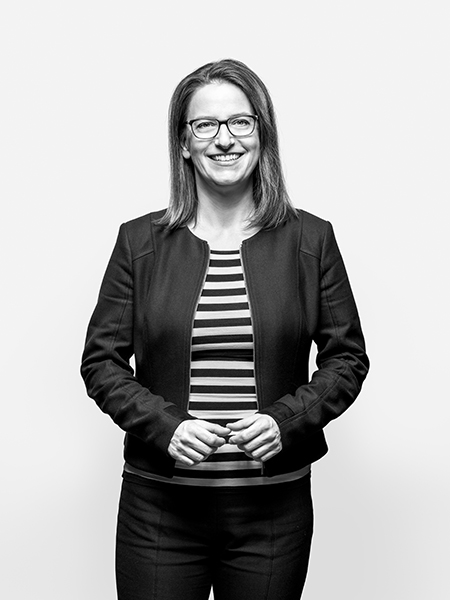Who Shapes New Digital Business Models?
Digitalization
Who Shapes New Digital Business Models?
The digital transformation is changing our daily lives and reshaping entire industries. Its impact on the chemical industry so far might have seemed limited. But that’s rapidly changing. Both start-ups and corporations are trying out new ways of reaching out to customers. New platforms and disruptive business models are taking hold. By moving early, Clariant is staking its territory and shaping its future.
External Expert Interview
Jian Min Sim
As CEO and Co-founder of SourceSage, Jian uses market data and modern communication technology to revolutionize the global trade in specialty chemicals.
Read the interviewWhat makes chemicals trading more efficient?

Jian Min, around 2014 you and your father started an app called SourceSage that has gotten a lot of attention. What is the idea behind it?
In short, SourceSage provides real-time market intelligence for chemical commodities and connects buyers and sellers. I like to call us the Amazon for market information.
What kind of products would I find on SourceSage?
We have about 400 products on our platform. Most of them are niche chemicals, downstream commodities, and specialties you wouldn’t find with Google, for instance.
How did you come up with the idea?
My parents were running a chemicals trading company when I came back from studying at Oxford. As a computer scientist, I realized that there was a lot of inefficiency in this market. Gathering market intelligence and prices was all about getting people on the phone. What we set out to do was to digitize this whole process. In a way, I wanted to digitize my father’s brain and his decades of experience. So initially, we set up a platform that provides market data and combined it with a chat functionality.
What’s so great about looking up suppliers on your smartphone?
We bring our data to the devices that people use anyway, be they smartphones, tablets, or desktop computers. That lowers the barrier. Also, this business is global, but most people in it aren’t native English speakers. So having a way to browse for information and then text someone rather than talk on the phone helps people become more comfortable. We see customers becoming more ambitious in venturing beyond their established network of suppliers, especially with global uncertainties like the trade wars that disrupt existing supply chains.
What’s your business model?
Registration to SourceSage is free, and you’re free to browse general market information and offers. For long-term access to individual pricing data you need to subscribe. We also offer official channels to suppliers who want to promote their products and to third-party market intelligence firms. And on top of that, we have a growing range of customers that use our platform as a white-label solution to set up their own marketplace.
How many subscribers do you have?
Right now we have 1 057 individual subscribers from a few hundred companies. Over 10 000 users use the basic features, and we learn a lot from them.
It’s said that inefficient markets make for higher prices. Do you make it harder for middlemen to make a profit?
First of all, especially with niche chemical products, buyers tend to value familiarity and reliability. So price isn’t everything. You need to provide customized services for customers. And I believe we offer opportunities to all stakeholders, including middlemen. These middlemen add value, for example by providing trade financing and logistical support.
How open are companies about their prices?
Initially, we saw that companies were very reluctant to share specific prices. What we could provide, however, was aggregated market reference prices as well as historical prices. Both help determine when to buy or sell. Today you’ll find product offers by companies that state, for example, their price range, available packaging, and treatment options as well as the port they ship from. Once you then click on the »buy« button, you’ll enter a private inquiry mode. That way both buyers and sellers can feel comfortable dealing via our platform.
Why don’t chemical companies just sell their commodities via a site like Alibaba?
Some do. But the types of transactions in this market aren’t really compatible with the payment mode of Alibaba. We’re dealing with transactions worth millions of dollars, where companies almost never pay 100 percent in advance and may even pay 30 to 45 days after receiving the goods at their port. That’s where middlemen, and especially banks, come in.
What’s the next step for SourceSage?
We have recently partnered with a bank in Singapore to build a B2B payments gateway for transactions via escrow accounts and even complete with trade financing solutions. That’s something that’s becoming more relevant in 2019.
Internal Expert Interview
Sibylle Mutschler
As Head of Digital4Clariant, Sibylle works on Clariant’s digital transformation and rethinks business models for the chemical industry.
Read the interviewHow can we shape the digital future of our industry?

Sibylle, is it true that the chemical industry is a bit of a latecomer in the digital transformation?
That’s certainly a prevailing stereotype. But it’s wrong. If you’re comparing our industry with, say, banking, publishing or music, then obviously our way of dealing with customers hasn’t changed as much. But if you look at the underlying processes, the picture is quite different. Here it’s banks and publishers that struggle to transform, while we’ve been dealing with automation, sensors, data, and digital tools for decades. To use some software terminology, their front end looks modern, but our back end is a lot more digitally advanced.
So the chemical industry primarily needs to digitalize how it deals with customers?
Don’t get me wrong! There’s a lot to benefit from new hardware and data science in our operations, too. Things like predictive maintenance, digital material flows, and robotics will help us improve efficiency, and we’re very much looking into these things. But when we at Clariant talk about digitalization, we make sure it’s not just about the next software or hardware update. We want to see what actual transformation looks like.
Who’s looking?
My team has six workstreams reflecting major digital opportunities we see – from big data to digital operations to new digital business models. And Clariant as a whole is building knowledge and infrastructure. One example is the new Data Science Center we recently set up in Frankfurt, Germany.
What is it you do there?
We’re combining our unique chemistry know-how with new ways of using data. Mind you, we’ve been hiring data scientists for years. We just never called them that. But these people have been improving processes and building knowledge that’s extremely valuable. What we’re now doing is applying new tools and new ideas under one roof. All to add more value and sell new services.
Speaking of selling, Clariant deals in physical materials, not ones and zeros like the music or banking industry you mentioned. Will that change?
Every Clariant product comes with information, and lots of it. Selling specialty chemicals means providing solutions to very specific problems. So our business was never only about materials. Our customers rely on our know-how. I’m sure our business models will include ones and zeros in the future as well.
What could that look like?
One of the ways we’re exploring is to develop specialized software-based services that our customers can use to leverage our vast chemical know-how.
On the other hand, Clariant recently started selling products via Alibaba in China. Doesn’t that detract from your customer relationships?
Alibaba is a way to reach customers. But it’s only one way. And Clariant is actively looking for other ways to reach its customers.
Is that the reason you started Chemberry™?
Very much so, yes.
What is Chemberry™?
It’s essentially a search engine to look up suppliers of specialty chemicals, today in the area of personal care. It lets you conveniently browse information you wouldn’t easily find using Google.
Why on earth would you set up a platform that makes it easier for buyers to find Clariant’s competitors?
That’s exactly what some of our detractors said. My response is that we believe in fair competition and we are not afraid to compete. Isn’t it a lot better then to help customers to find what they want and thereby learn a lot about how they want to interact with us?
What role does big data play for your business?
We’re looking at a future where more and more jobs will deal with at least certain aspects of data science. Chemberry™ is only the latest data source we added. We are by nature a »data-rich« company and there will be more data in the future. We expect a new generation of sensors to track almost every single aspect of our production processes. The actual technical maturity of sensors is still a challenge, however. We also learn from data in Research & Development, in logistics, in customer relationships management, and in human resources. The list goes on and on. The key is to find ever more ways of using data and the digital transformation to our advantage.